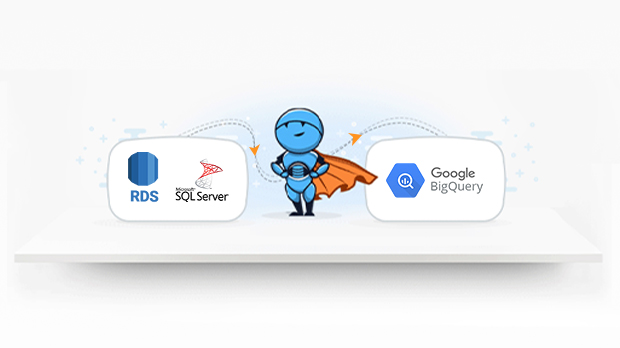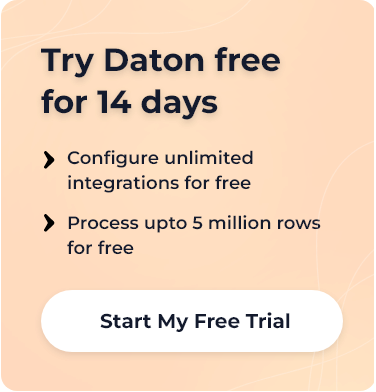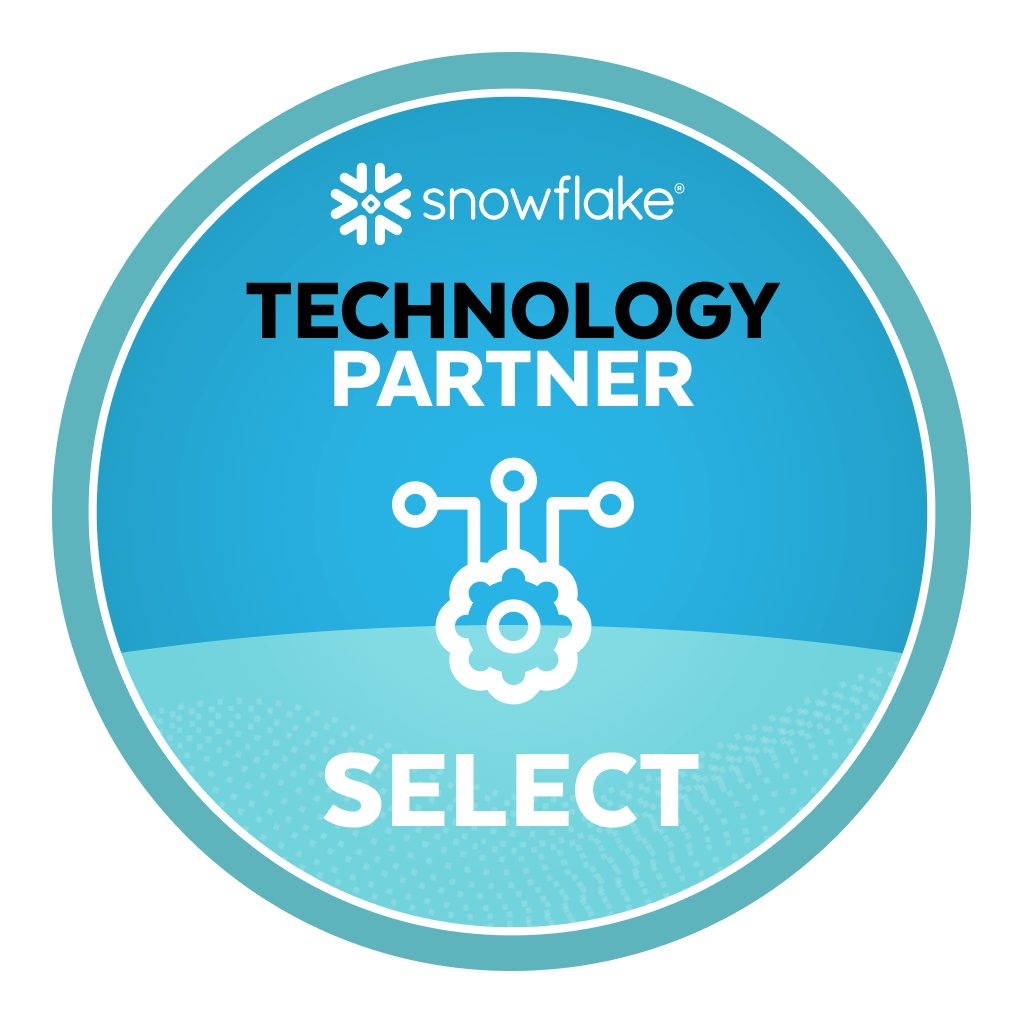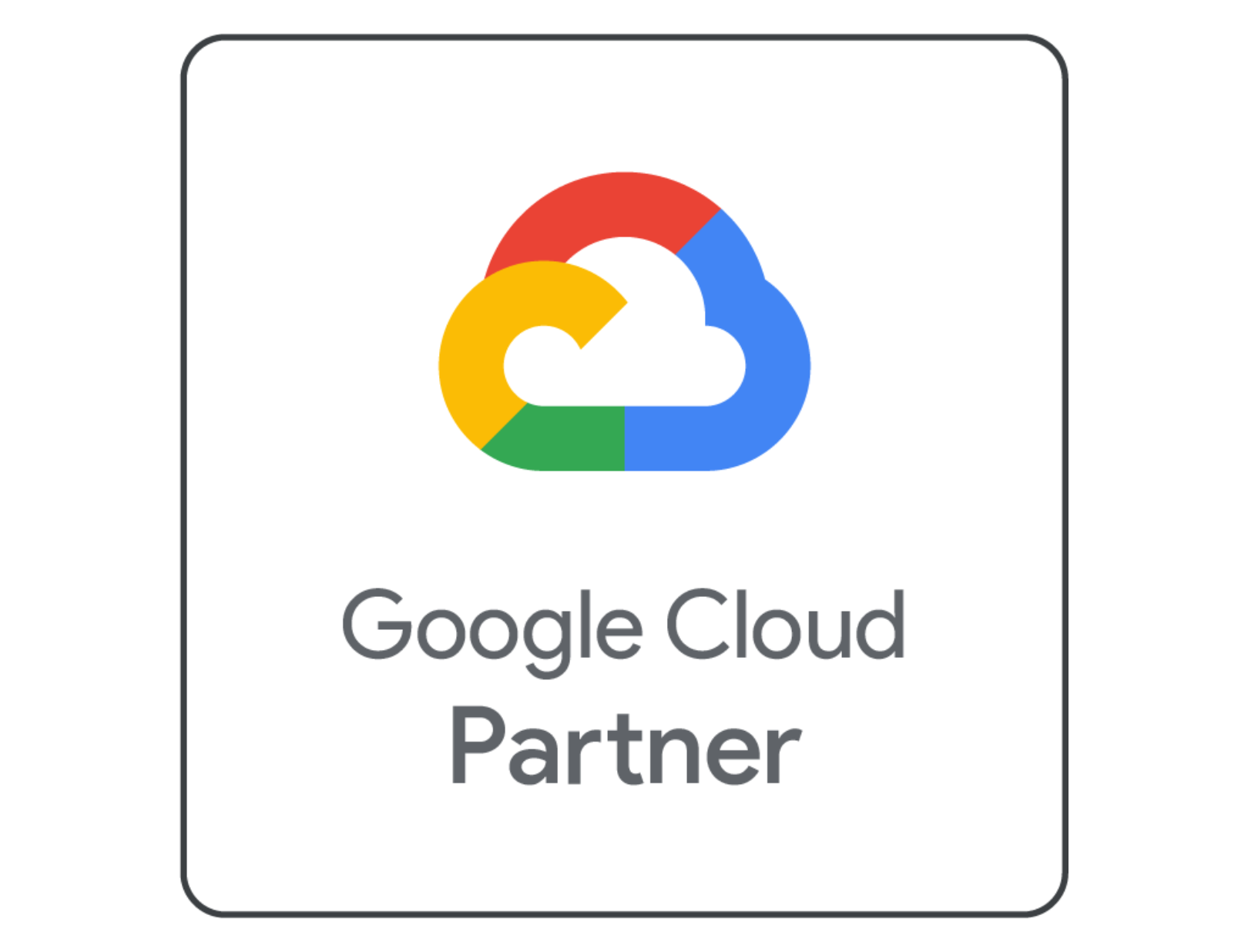Are you looking for an effective, and simple solution to migrate data from RDSSQL to Google BigQuery? Here is a data migration method that will enable you to migrate your data with an efficient ETL tool: Daton.
Nowadays, new companies need business data to make data-driven decisions and stay ahead in the market competition. Various data sources generate these business data. Moreover, they automate operations and need quick and secured storage. However, designing and maintaining such a secure and scalable physical storage architecture is costly. Hence, companies choose cloud servers like Microsoft SQL. Nevertheless, it is difficult to manage, replicate and extract data manually. So, enterprises select web services like Amazon RDS. RDS manages SQL effectively and controls SQL servers. Companies harnessing information decrease the time and effort of reporting and analyzing several data silos from servers, apps, and databases by opting for ETL tools like Daton. This tool replicates data from data sources to data warehouses like Google BigQuery and helps companies to have an integrated view for quick and accurate reporting.
Why integrate RDSSQL to Google BigQuery
Lately, new companies are opting for web services like Amazon RDS servers for managing business databases. RDS helps establish and manage SQL databases when several teams work in the organization across the globe. Moreover, RDS will replicate the database automatically, reduce data theft and loss, and command secure servers to back up the database. Combine data from RDSSQL with different databases like sales sheets, COGS, and Amazon Aurora and simplify the data analysis and reporting process. But the data consolidation, if done manually, consumes a lot of time and produces inaccurate results frequently. Hence, companies harnessing data opt for ETL tools like Daton. This ETL tool replicates RDSSQL to Google BigQuery. It is highly automated and easily migrates business data from various data sources to cloud data warehouses without the hassle of writing code.
RDSSQL Overview
Amazon RDS, also known as Amazon Relational Database Service, is a web service platform that allows users to maintain a relational database in the AWS Cloud. It is enhanced for transactional (OLTP) database workloads, I/O-intensive. Moreover, the inexpensive server with flexible capacity is used for general database administration tasks. Amazon RDSSQL helps DB instances running several versions and editions of Microsoft SQL Server. Amazon RDS for SQL Server supports the “License Included” model, including software, underlying hardware resources, and Amazon RDS management capacities. Companies can also take benefit of hourly pricing with no upfront fees or long-term commitments. Amazon RDS for SQL Server DB Instances comes with either standard or Provisioned IOPS storage. Amazon RDS Provisioned IOPS is a storage option for quicker delivery and consistent I/O performance.
Google BigQuery Overview
Google BigQuery is the first serverless data warehouse service that was available in the market. A database administrator architects the schema and enhances the partitions for performance and cost in a Google BigQuery environment. This cloud service automatically scales to fulfil any demands of a query. Google BigQuery service provides an excellent pricing model based on the amount of data processed by incoming queries, not on the storage or the compute capability for processing queries. The best part about utilizing Google BigQuery is that you can quickly load data to the service as soon as you begin utilizing it. The prime necessities are a mechanism to load data into the data warehouse and the capability to write SQL queries.
How to replicate RDSSQL to Google BigQuery
There are two ways in which you can replicate RDSSQL to Google BigQuery.
Build Your data pipeline – Building an in-house data pipeline needs a lot of experience, time and manpower with higher chances of errors. You need to extract data using RDSSQL APIs & then connect it properly with the Google BigQuery data warehouse.
Use Daton to integrate RDSSQL & Google BigQuery – Using Daton to integrate RDSSQL & Google BigQuery is the fastest & easiest way to save your time and efforts. Leveraging an eCommerce data pipeline like Daton simplifies and accelerates the time to build automated reporting to a great extent.
Configuring data replication on Daton only takes a few minutes and a few clicks. Analysts do not have to write any code or manage any infrastructure, yet they can get access to their Amazon ads data in a few hours. Daton’s simple and easy to use interface allows analysts and developers to use UI elements to configure data replication from RDSSQL data into Google BigQuery.
Daton takes care of:
- Authentication
- Rate limits,
- Table creation, deletion & reloads
- Refreshing access tokens,
- Sampling,
- Historical data load,
- Incremental data load,
- Notifications
and many more important functions for data analysts to focus on analysis rather than worry about the data replication process.
Steps to Integrate RDSSQL with Daton
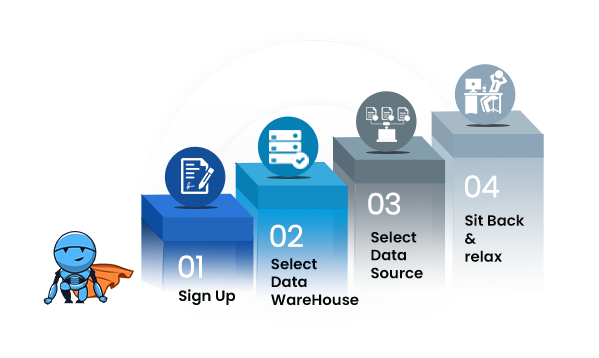
- Sign in to Daton
- Select RDSSQL from Integration’s page
- Provide Integration Name, Replication Frequency, and History. Integration name would be used in creating tables for the integration and you cannot change it later.
- You will receive redirects to RDSSQL login for authorizing Daton to extract data periodically
- Post successful authentication, you will get prompts to choose from the list of available RDSSQL Ad accounts
- Select required tables from the available list of tables
- Then select all required fields for each table
- Submit the integration
Sign up for a trial of Daton Today!
Here are more reasons to explore Daton for RDSSQL to Google BigQuery Integration
- Faster Integration of RDSSQL to Google BigQuery– RDSSQL to Google BigQuery is one of the integrations Daton can handle very fast and seamlessly. By following few steps, you can easily connect RDSSQL to Google BigQuery.
- Robust Scheduling Options: allows you to schedule jobs based on their requirements using a simple configuration step.
- Low Effort & Zero Maintenance – Daton automatically takes care of all the data replication processes and infrastructure once you sign up for a Daton account and configure the data sources. There is no infrastructure to manage or no code to write.
- Data consistency guarantee and an incredibly friendly customer support team ensure you can leave the data engineering to Daton and focus instead of analysis and insights!
- Enterprise grade data pipeline at an unbeatable price to help every business become data driven. Get started with a single integration today for just $10 and scale up as your demands increase.
- Support for all major cloud data warehouses including Google BigQuery, Amazon Redshift, Snowflake, Oracle Autonomous Data Warehouse, PostgreSQL and more.
- Flexible loading options allows to you optimize data loading behavior to maximize storage utilization and easy of querying.
- Enterprise grade encryption gives your peace of mind
- Support for 100+ data sources – In addition to RDSSQL, Daton can extract data from a varied range of sources such as Sales and Marketing applications, Databases, Analytics platforms, Payment platforms and much more. Daton will ensure that you have a way to bring any data to Google BigQuery and generate relevant insights.
For all sources, check our data connectors page.
Other Articles by Saras Analytics,
